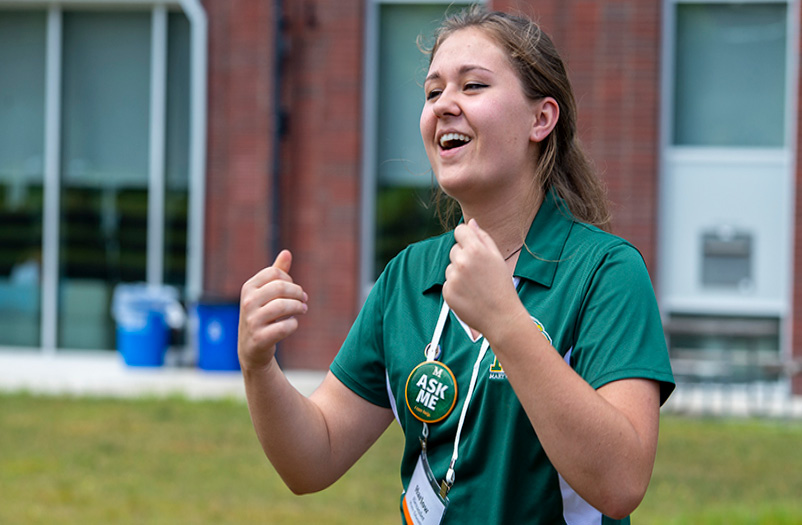
I have been so fortunate to travel the country and even the world with the Marywood bands. My musicianship has skyrocketed and my leadership and social skills have blossome...
Develop advanced teaching strategies and leadership capabilities to best share your musical passion with students of all ages in a nationally recognized collegiate environment. With a Music Education degree, you can instill and nurture that same passion in students from K-12.
Marywood University is the only educational institution in Northeast Pennsylvania that offers a BM in Music Education, which will set you apart in your future job search. You have the added advantage of attending a small university with big school opportunities, while you get more value out of the experience.
How to Become a Music Teacher
The roadmap to a successful music education career encompasses several thrilling steps. First, master your musical talents by dedicating time to hone your chosen instrument or vocal expertise while delving deep into the essence of music theory. The next stride involves selecting a top-tier music education program, like the one at Marywood University, to craft a solid foundation. Embrace diverse experiences by joining musical ensembles and diving into real-world teaching settings during your student placements. Securing your teacher certification is a pivotal moment, ensuring you're equipped with the necessary tools to impart musical wisdom. Finally, as you set foot into the world of job hunting, tailor your credentials and enthusiasm for music education to land that perfect role.
Music education majors have the opportunity to start observations in the public schools during their first semester and our graduates receive Pennsylvania teacher certification in music K-12 (vocal, instrumental, and general)
Professional memberships available through the National Association for Music Education (NAfME) and Pennsylvania Music Education Association (PMEA)
Renowned, highly credentialed music faculty and more individualized attention and instruction


I have been so fortunate to travel the country and even the world with the Marywood bands. My musicianship has skyrocketed and my leadership and social skills have blossome...
Explore the vibrant community and endless opportunities that await you at Marywood. Attend one of our special events designed specially for you to learn more about Marywood's degree programs, dedicated faculty, and welcoming campus.
Weekday Visits »Marywood University hosts three academic Centers of Excellence on campus; The Center for Law, Justice and Policy, The Center for Urban Studies, and The Mother Theresa Maxis, IHM Center. Each center provides students with the tools and resources to excel in their academic endeavors, fostering a dynamic environment where they can engage deeply with their respective fields of study and make meaningful contributions to their communities and beyond.
Marywood University is accredited by the Middle States Commission on Higher Education (MSHE). / ADDRESS / 3624 Market Street, 2nd Floor West, Philadelphia, PA 19104. | Phone: (267) 284-5000
Info For: